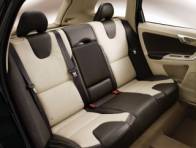Apr 27 2009
New ELV regulations no problem for ARPRO 100 percent recyclable material helps meet End-of-Life Vehicle targets at 2015 .

An independent Life Cycle Assessment (LCA) has confirmed that ARPRO components will help OEMs meet the forthcoming End-of-Life Vehicle (ELV) targets. The efficient recycling of non-metallic parts will be crucial in helping manufacturers meet the ELV Regulations, and in 2015 the re-use and recovery targets will increase from 85 percent to 95 percent by weight of vehicle.
“As a 100 percent recyclable material, there is a clear ELV benefit for products manufactured from ARPRO when they reach the end of their useful life, and after conducting a cradle to grave analysis we can demonstrate that ARPRO delivers a quantifiable and significant environmental benefit in use,” explains Paul Compton, JSP’s Executive Vice President and Chief Operating Officer - Europe.
ARPRO provides such a range of engineering and environmental properties that it can replace combinations of traditional component materials to become a mono-material component, like the seats used as a basis for the LCA report. Such systems are gaining in popularity due to ease of classification when at end of life.
Commissioned by JSP, the independent report calculated the environmental impact of producing a complete seat core through its lifecycle, with the final “end-of-life” environmental impact being insignificant relative to other life cycle stages, even at disposal.
Introduced in 2005, the ELV regulation asks that producers should increasingly take responsibility for their products once they become waste and ensure that vehicles are increasingly designed for recycling.
“The LCA report illustrated how an ARPRO mono-material seat base can save weight and ease sortation at the end of the products life,” continues Compton. “To promote further use of the product and increase understanding of its environmental benefits, JSP has been pro-active in expediting a full life cycle assessment report for ARPRO. Despite the focus of the automotive industry, few suppliers have taken such steps.”